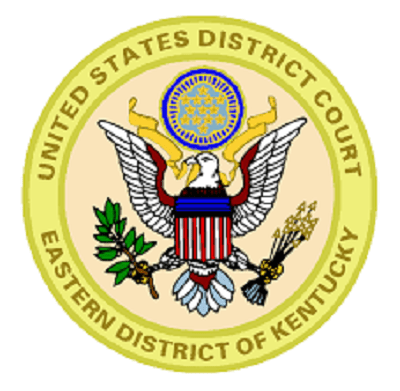
A Somerset man was found guilty Tuesday by a federal jury of conspiring to run a complex, long-running multi-state Ponzi scheme that resulted in victims being defrauded out of $2.2 million.
After a brief deliberation following an eight-day trial at U.S. District Court in London, the jury convicted 58-year-old Rodney Scott Phelps of one count of conspiracy to commit wire fraud and 12 additional counts of wire fraud. The office of the U.S. Attorney for the Eastern District of Kentucky says Phelps and co-defendant Jason T. Castenir perpetrated the scheme through three fake investments.
During the trial, evidence was presented that Castenir and Phelps convinced investors from across the country, including in Washington, Ohio, Arizona, and Nevada, to join in an opportunity to obtain an oil concession from the government of Belize. They boasted of vast experience in successful oil exploration ventures and promised investors royalties on any oil extracted and a considerable interest rate on their investment, all of which was to be backed by Phelps’s multi-million-dollar trust, in the name of Phelps Family Trust.
Investors raised hundreds of thousands of dollars for this investment, wiring those funds to the men’s investment firm. Evidence at trial revealed that Phelps and Castenir had little experience with successful oil ventures, and that there was no sizeable Phelps Family Trust. The men used the money they raised for their firm’s operating expenses, to pay themselves, and to make Ponzi payments back to earlier victim-investors.
In the second scheme, Phelps convinced three victims from Tennessee to invest roughly $1.2 million with them to trade on various commodities markets, again boasting of their vast experience successfully trading on these markets, including with funds from the Phelps Family Trust.
Phelps and Castenir invested roughly one-third of this money on commodities markets, losing almost all of it, but sent victims accounting statements detailing profits on their investments. Phelps and Castenir spent the rest of the money on their firm’s operating expenses, personal profit and Ponzi payments to other victim-investors.
In a third scheme, Phelps convinced two victims from Tennessee to pay $1 million to an escrow account earmarked for initiating the purchase of a casino in Tunica, Mississippi. Phelps had committed to likewise pay $1 million from the Phelps Family Trust to match the victim investment, but never did. Instead, Phelps and Castenir took this money from the escrow account to pay their operating expenses, invest on commodities and stock markets, personally profit, and for payments to other victim-investors.
Phelps faces up to 20 years in prison when he is sentenced in December. Castenir pleaded guilty for his role in August 2017 and faces a maximum of 20 years at his sentencing later this month.
By Ken Howlett, News Director
Contact Ken at ken@k105.com or 270-259-6000








